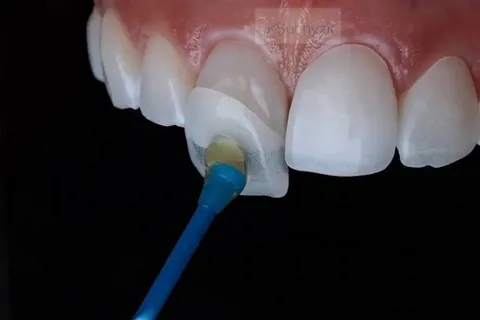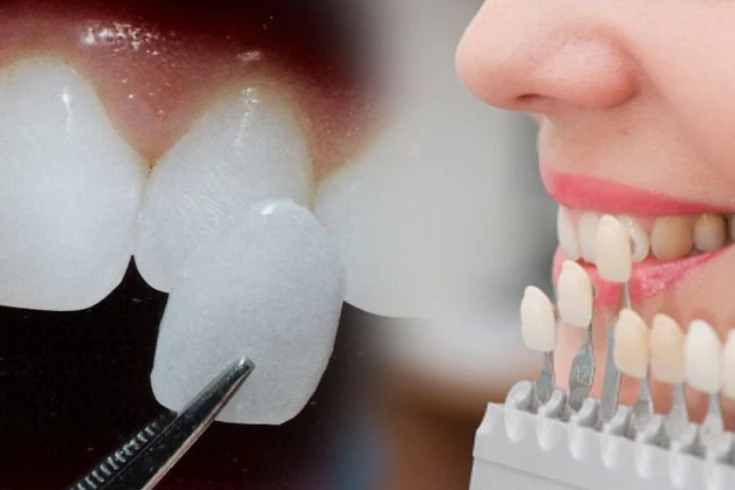Root canal treatment is an essential dental procedure to save infected or decayed teeth that might otherwise need extraction. In Florida, known for its high-quality dental care, root canal procedures are typically performed by experienced endodontists specializing in this intricate treatment.
The procedure involves removing the infected pulp, cleaning the inside of the Tooth, and sealing it to prevent further infection.
Finding the right endodontist in Florida is crucial, as their expertise ensures a smooth and successful treatment.
The complexity of the case and the specific dentist determine the costs, which are worthwhile for preserving your natural smile.
Recovery generally involves mild discomfort, which can be managed with over-the-counter pain relievers, allowing patients to return to normal activities quickly.
Root canal treatment in Florida saves teeth and restores dental health, making it a vital option for those facing severe tooth decay or infection.
What is Root Canal Treatment?
Root canal treatment, or endodontic therapy, is a procedure to remove infected or damaged pulp from within a tooth.
The pulp consists of nerves and blood vessels, which, when infected, can cause severe pain and lead to further complications such as abscesses.
During the procedure, the dentist removes the infected pulp, the inner chambers of the Tooth are cleaned and disinfected, and the space is filled and sealed to prevent future infections.
Why Do You Need a Root Canal?
A root canal occurs when the pulp inside a tooth is inflamed or infected. Several symptoms and conditions may indicate the need for this procedure:
- Persistent Tooth Pain: Continuous pain, particularly when chewing or applying pressure, often signals an infection in the pulp.
- Sensitivity to Temperature: If you experience prolonged sensitivity to foods and beverages that are too hot or cold even after the dentist removes the stimulus, the nerves in the tooth may be damaged.
- Swollen Gums: Swelling or tenderness in the gums around a specific tooth can be a sign of infection or an abscess.
- Deep Decay: When a cavity extends deep into the Tooth, reaching the pulp, a root canal is often necessary to save the Tooth.
- Tooth Discoloration: A darkened tooth may indicate that the pulp is dying or has already died, necessitating a root canal.
- Chipped or Cracked Tooth: A crack or chip can expose the Tooth’s nerves, leading to infection and requiring a root canal.
- Repeated Dental Procedures: Multiple procedures on the same Tooth can irritate or infect the pulp, leading to the need for a root canal.
- Infection or Abscess: Bacterial infections in the pulp can cause abscesses, which may require a root canal to prevent the infection from spreading.
The Steps Involved in a Root Canal Procedure
Root canal treatment is a multi-step process designed to eliminate infection and preserve the Tooth. Here’s what you can expect:
- Diagnosis and Consultation: First, the dentist will examine your Tooth. The dentist will determine the extent of the infection and the need for a root canal.
- Anesthesia: The dentist uses local anesthesia to numb the affected tooth and surrounding area. They also ensure a pain-free procedure.
- Accessing the Pulp: The dentist creates a small opening in the Tooth. The dentist will use the opening to access the pulp chamber.
- Removing the Infected Pulp: The dentist uses advanced tools to remove the infected or damaged pulp.
- Cleaning and Disinfecting: The dentist will meticulously clean and disinfect the tooth’s interior to remove any remaining bacteria.
- Filling and Sealing: The dentist fills the empty pulp chamber with a biocompatible material known as gutta-perch. After the filling, the dentist will seal the Tooth to prevent future infections.
- Restoration: Mostly, a crown is placed over the treated Tooth to restore strength and functionality.
How to Find the Right Endodontist in Florida?
Selecting the right endodontist is crucial for a successful root canal treatment. Florida is home to many top-rated dental professionals, and here’s how to choose the best one for your needs:
- Check Credentials: Ensure the dentist is a licensed endodontist with specialized training in root canal therapy.
- Experience: Look for an endodontist with substantial experience, particularly in complex cases.
- Reputation: Read online reviews and seek recommendations from friends, family, or your general dentist.
- Technology: Opt for a clinic that utilizes advanced technology. The advanced technology will enhance the precision and success of the procedure.
Cost of Root Canal Treatment in Florida
Like in any other state, the cost of Root canal treatment varies. Within the state itself, the cost of root canal treatment varies.
The factors that make the cost of root canal treatment different are the location of the Tooth, the complexity of the case, and your dental insurance coverage. Here’s a general idea of what you might expect to pay:
| Treatment | Cost |
| Front Tooth | $600 – $1,200 |
| Premolar | $700 – $1,400 |
| Molar | $900 – $1,600 |
If a crown is required post-treatment, the total root canal treatment in Florida cost could increase by $500 to $3,000. Verifying with your dental insurance provider is essential to understand your coverage and out-of-pocket expenses.
What to Expect During Recovery
After a root canal, most people experience some discomfort or mild pain for a short period. Over-the-counter pain relievers are typically effective in managing this discomfort.
Most people can return to normal activities within a day. It would help if you did not chew with the treated tooth until we place a permanent crown.
Maintaining good oral hygiene during recovery is crucial. Regular brushing, flossing, and an antiseptic mouthwash can help prevent further complications.
What are the Benefits of Root Canal Treatment?
Like any other treatment, root canal treatments have several benefits. Some of the benefits are:
- Relief from pain: It eliminates the source of severe tooth pain caused by infected or inflamed pulp.
- Preservation of Natural Tooth: The procedure saves your natural Tooth, maintaining proper bite alignment and jawbone integrity.
- Prevent Tooth Extraction: Root canal treatment will prevent you from extracting the natural Tooth. It will also save you money from invasive replacements, like implants or bridges.
- Infection Control: It prevents the spread of infection to adjacent teeth and other parts of the mouth.
- Restored Functionality: After receiving a crown, the treated Tooth regains its chewing and biting capabilities.
- Enhanced Oral Health: Removing the infected pulp reduces the risk of future dental problems and promotes overall oral health.
- Aesthetic Appeal: When paired with a crown, the treated Tooth looks natural and blends seamlessly with your other teeth.
- Longevity: With proper care, a root canal-treated tooth can last a lifetime, offering a durable solution to dental problems.
Conclusion
Root canal treatment is the best option to save a tooth and relieve the pain caused due to infection. In Florida, you have access to some of the best endodontists in the country.
This dentist will ensure that you receive the best treatment and care. By understanding the procedure, selecting the right dentist, and being informed about costs and recovery, you can confidently approach your root canal treatment.
FAQs:
How do I find the right endodontist in Florida?
To find a qualified endodontist, verify their credentials, experience, and reputation. Look for professionals with specialized training in root canal therapy and those using advanced technology like digital X-rays and operating microscopes.
Are there any alternatives to root canal treatment?
In some cases, tooth extraction might be recommended if a root canal is not feasible. However, extraction can lead to other dental issues and often requires replacement with an implant or bridge.
How long do root canal-treated teeth last?
With proper care, root canal-treated teeth can last a lifetime. Maintaining good oral hygiene and regular dental check-ups are essential to ensuring the longevity of the treated tooth.
What are the benefits of root canal treatment?
Root canal treatment relieves pain, saves the natural tooth, prevents the need for extraction, stops the spread of infection, restores chewing function, improves oral health, and, when paired with a crown, provides aesthetically pleasing results.
Can I eat normally after a root canal?
You should avoid chewing on the treated tooth until a permanent crown is placed. Once the crown is in place, you can resume normal eating and chewing activities.







